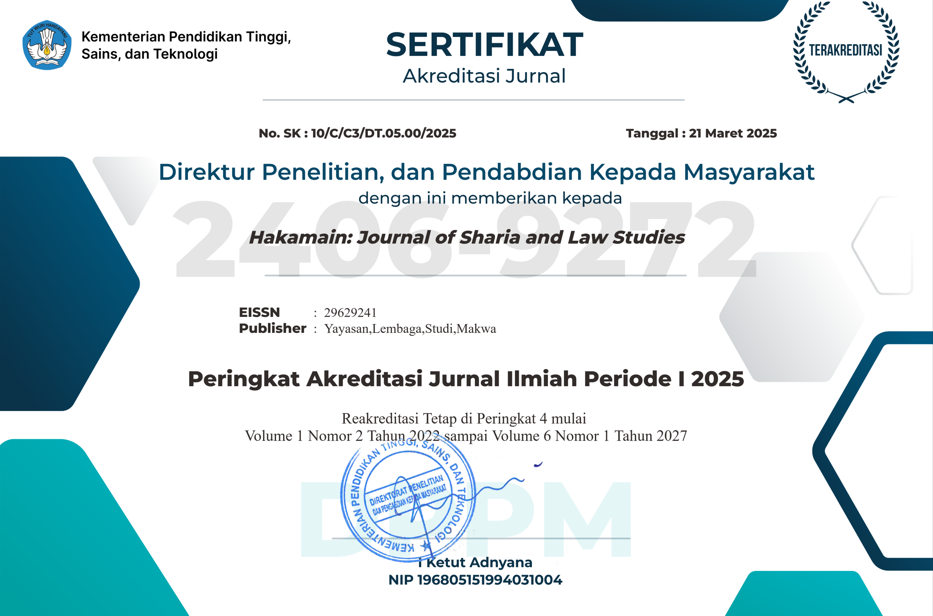Judicial System Digitalization: The Constitutionality of the E-Court System in Southeast Asia
DOI:
https://doi.org/10.57255/hakamain.v4i1.1343Keywords:
E-Court, Judicial Reform, Legal Technology, Southeast AsiaAbstract
This study aims to examine the constitutionality of the e-Court system as a form of judicial system digitalization in Indonesia and Malaysia. The research employs an empirical legal method by conducting in-depth interviews with judges, court staff, lawyers, and digital service users, as well as direct observations of e-Court implementation in selected judicial institutions across both countries. The primary objective is to understand how the digital transformation of court procedures aligns with constitutional principles such as access to justice, legal certainty, due process, and transparency. The findings indicate that in Indonesia, the e-Court system is largely viewed as constitutionally valid, rooted in the Supreme Court’s authority and the national commitment to judicial reform. However, issues such as uneven digital infrastructure, limited public access, and procedural challenges still persist. In Malaysia, the e-Court system is part of broader administrative reforms and has received significant institutional support, yet concerns remain regarding its compatibility with constitutional guarantees, especially in ensuring equal treatment and procedural fairness for all litigants. The study concludes that while both systems reflect progressive efforts to modernize the judiciary, their long-term legitimacy depends on how well they integrate constitutional values into digital innovations. The academic contribution of this research lies in providing an empirical and comparative perspective on how constitutional principles are interpreted and applied in the digitalization of judicial processes in Southeast Asia, thereby enriching the discourse on law and technology in developing constitutional democracies.
Downloads
Published
How to Cite
Issue
Section
Citation Check
License
Copyright (c) 2025 Zumrotu Ruzayana, Ulfa salsabila, Syarifah Salimah Nailulmuna, Robiah Nuzul Hidayah, Misbahul Firsha

This work is licensed under a Creative Commons Attribution-ShareAlike 4.0 International License.






